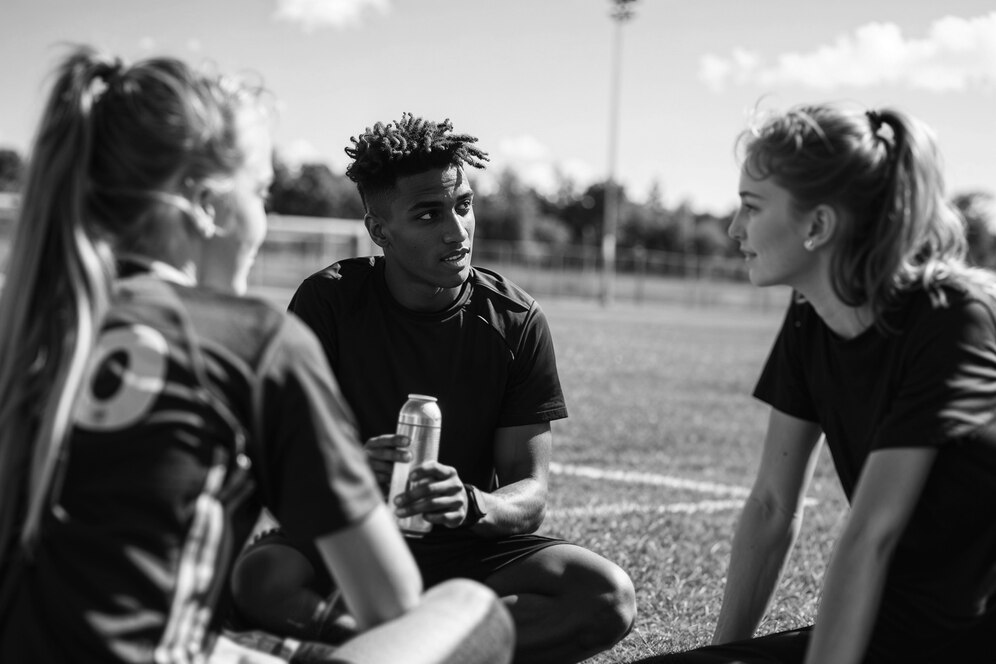Table of contents
Sports have always been a powerful force, not just in the realm of physical competition, but in the realm of social change and inclusivity. For centuries, sports have brought people together, united diverse communities, and fostered an environment of teamwork and solidarity. Today, the role of sports extends far beyond the playing field as they continue to drive conversations around gender equality, racial justice, mental health, and global unity.
In this blog post, we will explore how sports have become a platform for promoting social change and inclusivity, breaking down barriers and challenging societal norms. From grassroots initiatives to global movements, sports have shown time and time again that they are capable of making a real, lasting impact on society.
The Role of Sports in Breaking Down Barriers
One of the most significant ways that the role of sports plays a part in promoting social change is by breaking down physical, cultural, and societal barriers. Throughout history, sports have served as a powerful tool for uniting people from different backgrounds, cultures, and communities. Whether on a local or global scale, the values of teamwork, perseverance, and fair play transcend borders and encourage inclusivity.
Promoting Racial Equality and Justice
From Jackie Robinson breaking the color barrier in Major League Baseball to the powerful protests seen in the NFL during the national anthem, sports have been at the forefront of racial justice movements. Athletes like Muhammad Ali, Colin Kaepernick, and Serena Williams have used their platforms to speak out against racial inequality and police brutality, creating powerful discussions that extend far beyond the sports world.
In recent years, the Black Lives Matter movement has gained traction in sports as athletes and organizations have come together to call for racial justice. The role of sports in amplifying these voices cannot be overstated, as it has created an avenue for people to engage with important societal issues and raise awareness on a global scale.
Challenging Gender Norms
Sports have also played a vital role in challenging gender norms and fighting for equality. From the early struggles of female athletes to the present-day campaigns for equal pay, women in sports have been at the forefront of advocating for gender equality. High-profile figures like Serena Williams, Billie Jean King, and Megan Rapinoe have used their careers to promote women’s rights and challenge traditional perceptions of gender roles.
The role of sports in advocating for women’s rights extends beyond pay equity. In many cultures, women have been historically excluded from participating in sports due to traditional beliefs and practices. However, organizations like the Women’s National Basketball Association (WNBA) and the Women’s World Cup have given women the opportunity to showcase their athleticism and talent, creating a more inclusive sporting landscape for future generations.
Advocating for LGBTQ+ Rights
In addition to promoting gender equality, sports have also become an important space for advocating for LGBTQ+ rights. Athletes like Jason Collins, the first openly gay player in the NBA, and Megan Rapinoe, who is openly gay and an advocate for LGBTQ+ rights, have broken down the barriers of silence and stigma surrounding LGBTQ+ individuals in sports.
The visibility of openly LGBTQ+ athletes has created a ripple effect in the world of sports, with more athletes feeling empowered to be true to themselves and speak out for the rights of marginalized communities. The role of sports in supporting LGBTQ+ inclusivity is helping to create a safer, more welcoming environment for athletes of all sexual orientations and gender identities.
The Role of Sports in Promoting Mental Health Awareness
Another key area where the role of sports contributes to social change is in the promotion of mental health awareness. Historically, mental health issues have been stigmatized, especially in the world of sports, where athletes were expected to demonstrate physical and emotional toughness. However, in recent years, high-profile athletes have used their platforms to speak openly about mental health struggles and the importance of seeking help.
Breaking the Silence on Mental Health
Athletes like Naomi Osaka, Michael Phelps, and Simone Biles have been vocal about their personal struggles with mental health. They have highlighted the pressures they face as elite athletes, as well as the emotional toll of maintaining a high level of performance. By opening up about mental health, they have created a broader conversation about the importance of well-being in the world of sports and beyond.
The role of sports in destigmatizing mental health issues has been crucial. Professional organizations like the NBA, NFL, and Olympic Committee are now investing in resources to support athletes’ mental health, recognizing that mental well-being is just as important as physical fitness.
Promoting Healthy Lifestyles and Resilience
Sports also play a major role in promoting resilience and mental toughness. By encouraging people to engage in physical activity, sports foster a sense of accomplishment, self-esteem, and community. These factors can significantly contribute to better mental health, as participating in sports helps individuals cope with stress, build confidence, and create positive social connections.
Global Impact: Sports as a Catalyst for Social Change
Beyond the individual and societal impacts, sports have the potential to bring about global social change. Large-scale sporting events like the Olympics and the FIFA World Cup have the power to unite nations, bridge cultural divides, and showcase shared human values. In many ways, these events serve as a reminder that, regardless of nationality, ethnicity, or background, the universal love for sports can foster peace and collaboration.
Peacebuilding Through Sports
The role of sports in diplomacy and peacebuilding is particularly evident in the history of the Olympics. One notable example is the 1968 Mexico City Olympics, where athletes Tommie Smith and John Carlos raised their fists in protest of racial inequality in the United States, showing that sports can be used as a platform for advocating for human rights.
Similarly, the South Africa Rugby World Cup in 1995, which took place after the end of apartheid, demonstrated the unifying power of sports. The tournament played a crucial role in bringing together a divided nation, with Nelson Mandela using the event to promote racial reconciliation and national unity.
Frequently Asked Questions (FAQ)

Sports promote social change by providing a platform for athletes and organizations to raise awareness about important issues such as racial equality, gender rights, mental health, and LGBTQ+ inclusion. The visibility and influence of sports can spark conversations and drive societal transformation.
The role of sports in promoting gender equality includes advocating for equal pay, providing women with opportunities to compete at the highest level, and challenging societal stereotypes about women’s athletic abilities.
Yes, engaging in sports can significantly improve mental health by providing physical exercise, reducing stress, fostering a sense of achievement, and offering a social support network. Moreover, athletes have helped break the stigma around mental health through their openness about struggles.
Sports create opportunities for people from different backgrounds, cultures, and communities to come together and work towards common goals. By promoting diversity and equality, sports help break down barriers and foster a sense of belonging for all.
Sports events like the Olympics and World Cup act as a bridge for nations, creating opportunities for diplomacy, understanding, and unity. They bring together people of different backgrounds to celebrate shared values, helping to promote global peace and cooperation.
Final Thoughts
The role of sports in promoting social change and inclusivity is undeniable. Sports have the unique ability to unite people, challenge societal norms, and raise awareness on crucial issues such as racial equality, gender rights, mental health, and LGBTQ+ inclusivity. As the world continues to evolve, sports will undoubtedly continue to serve as a powerful tool for progress and social transformation.




